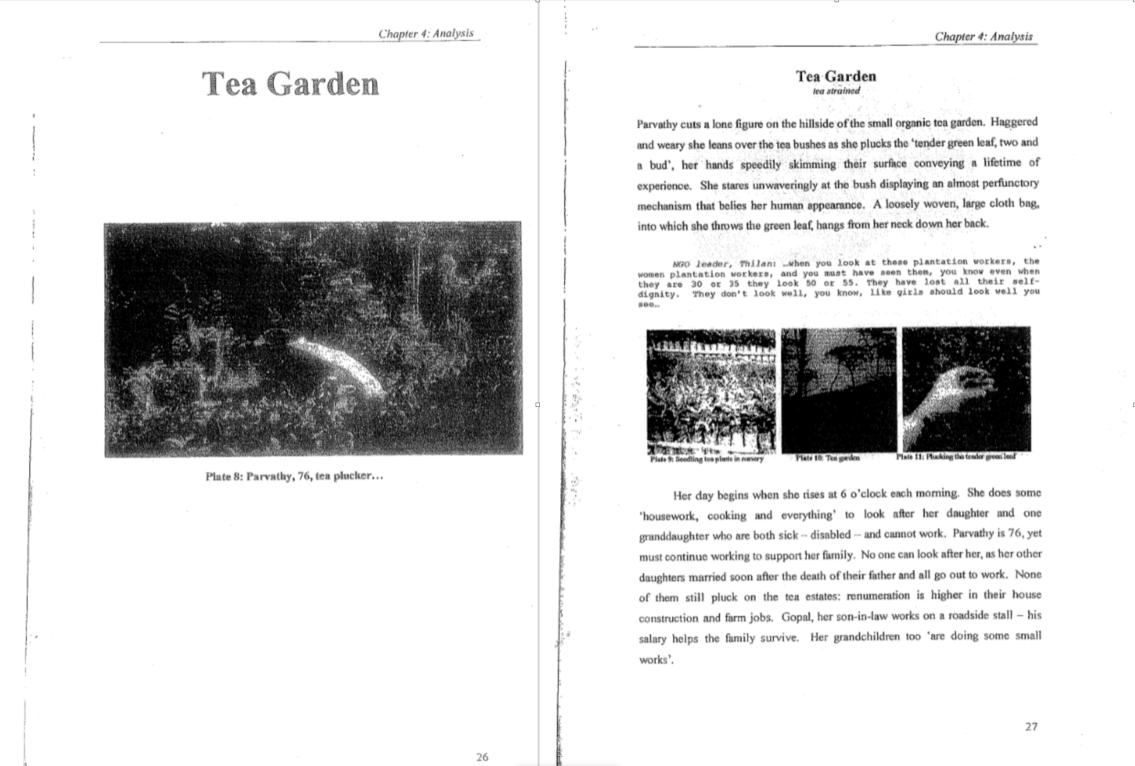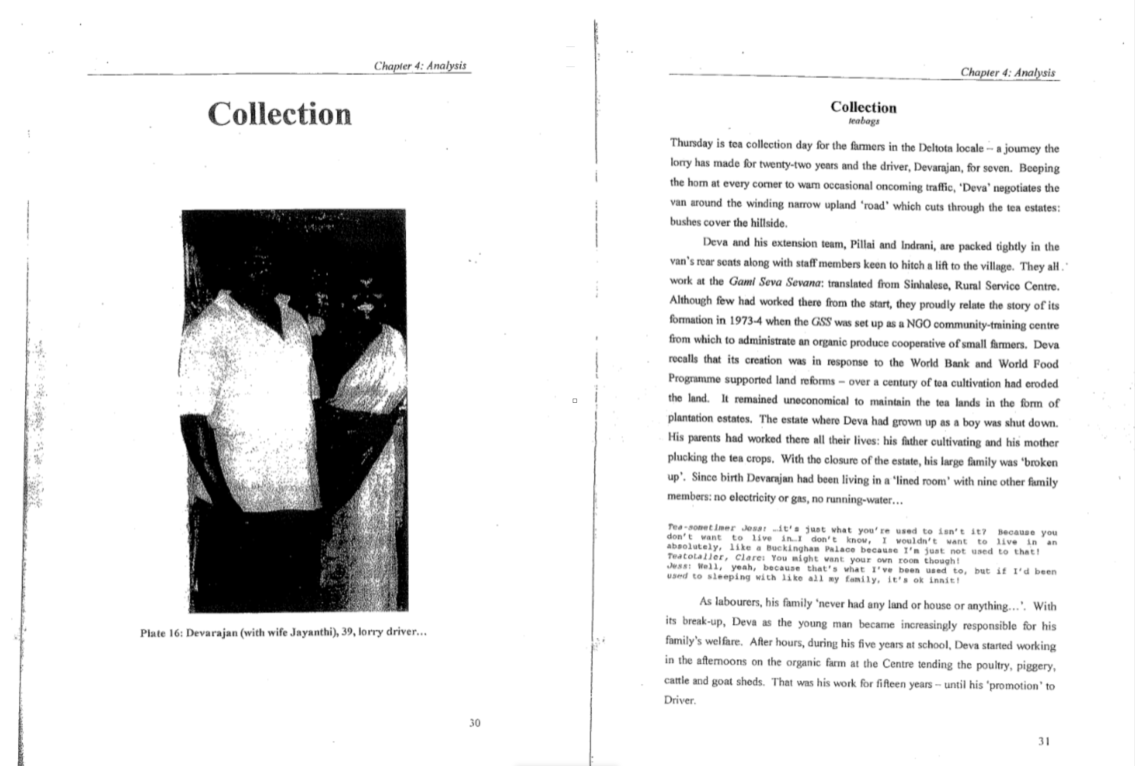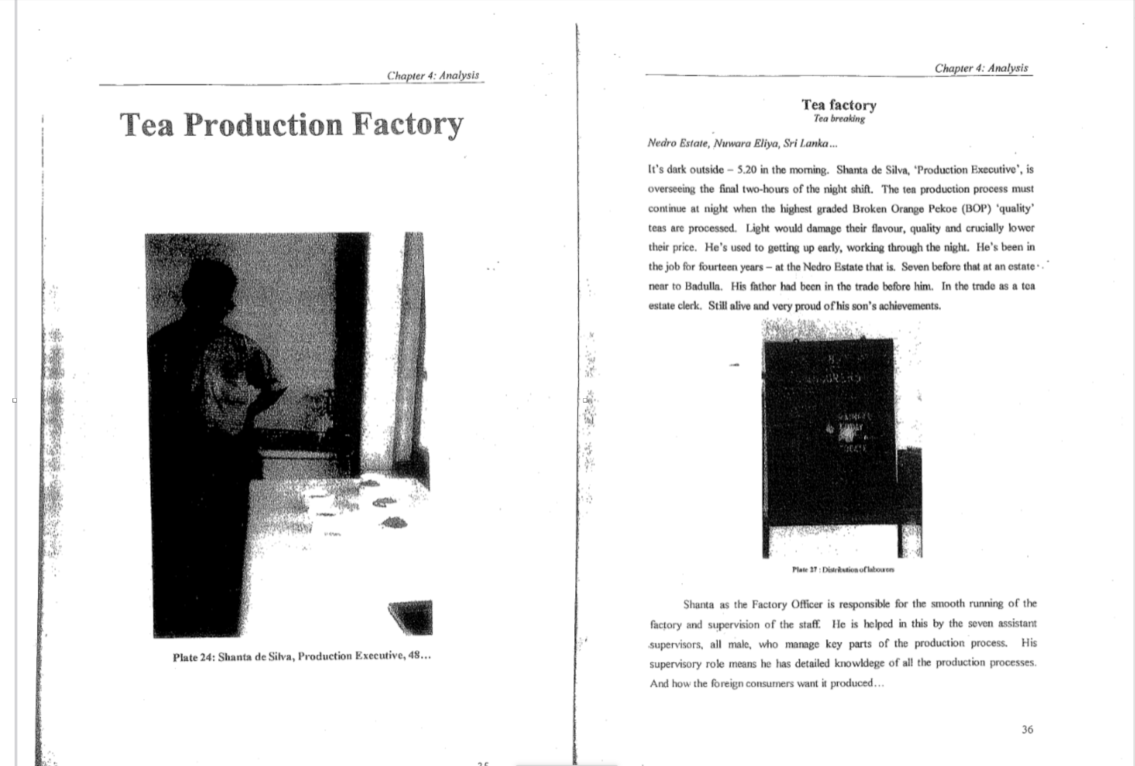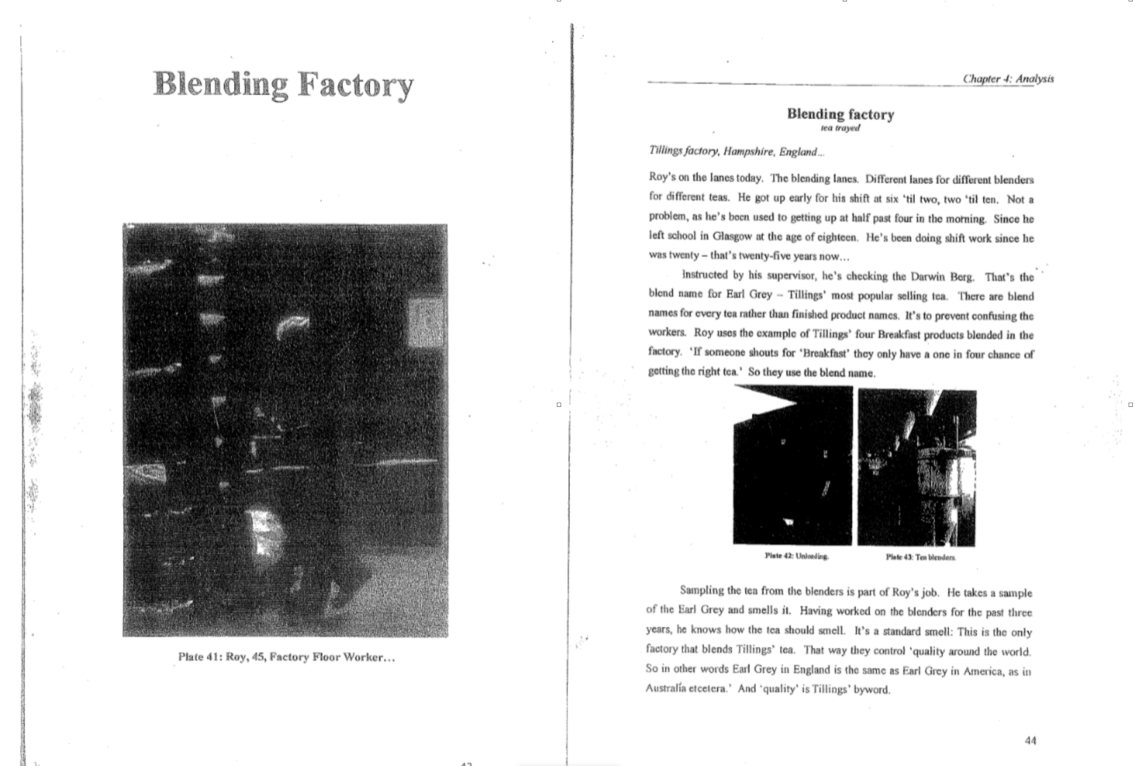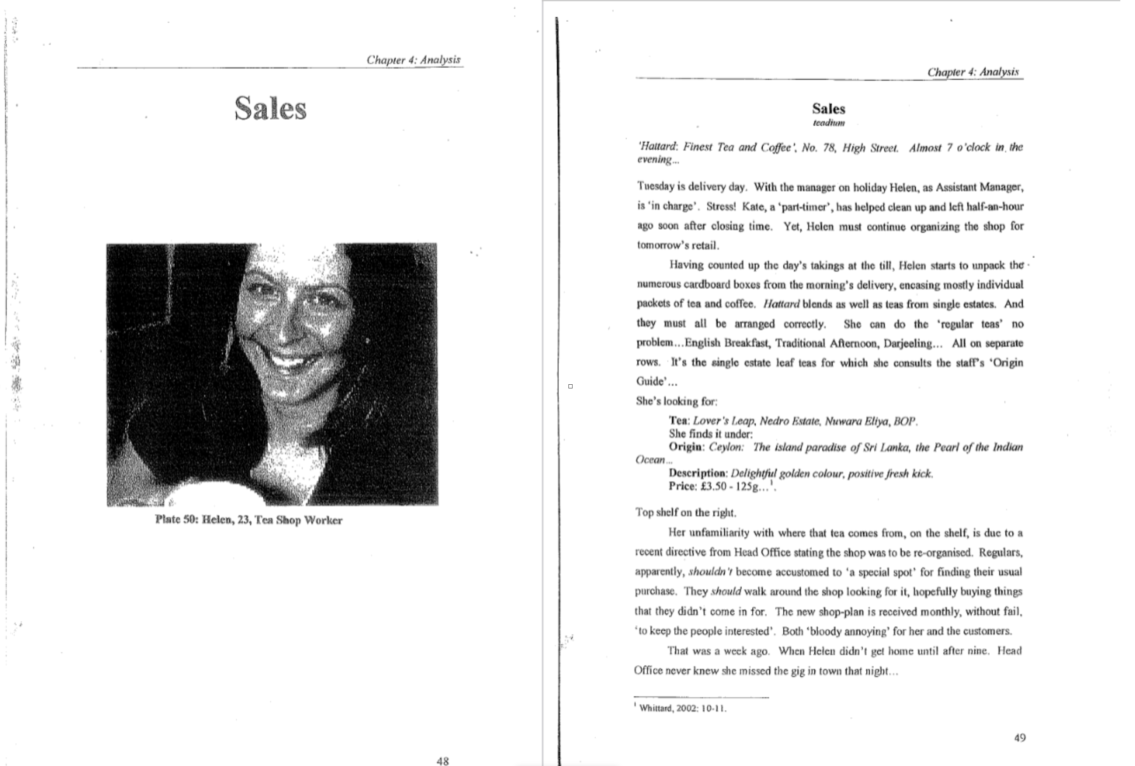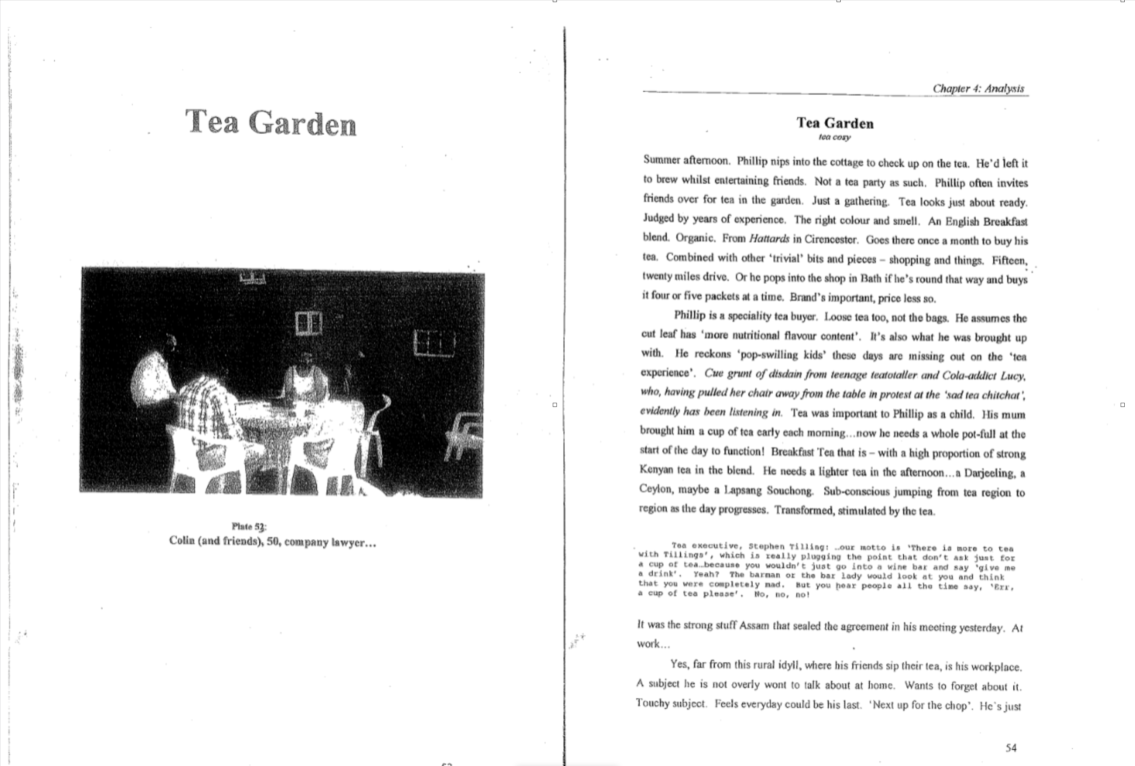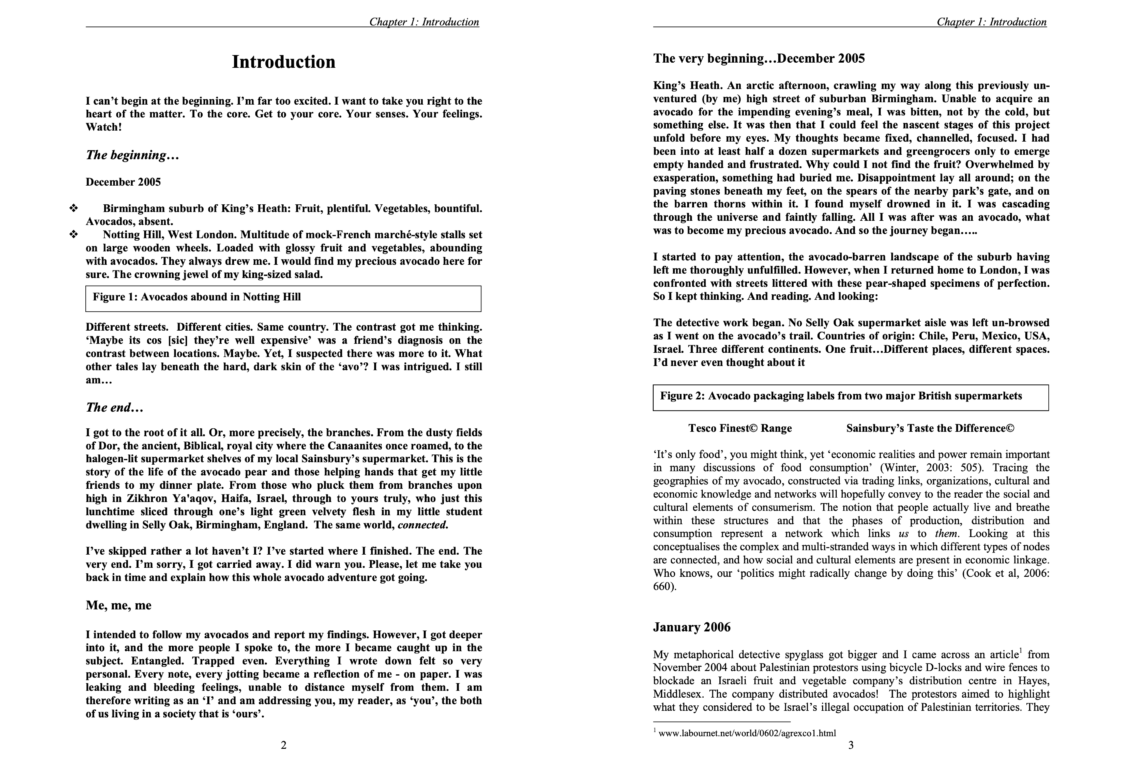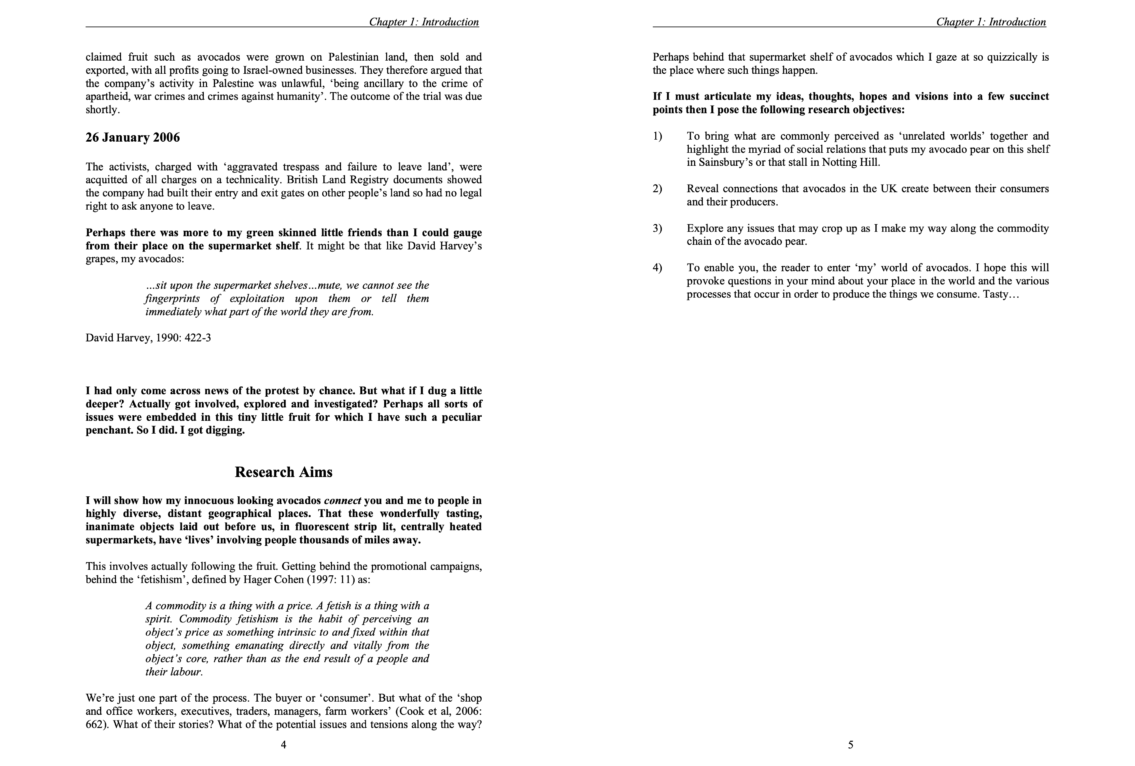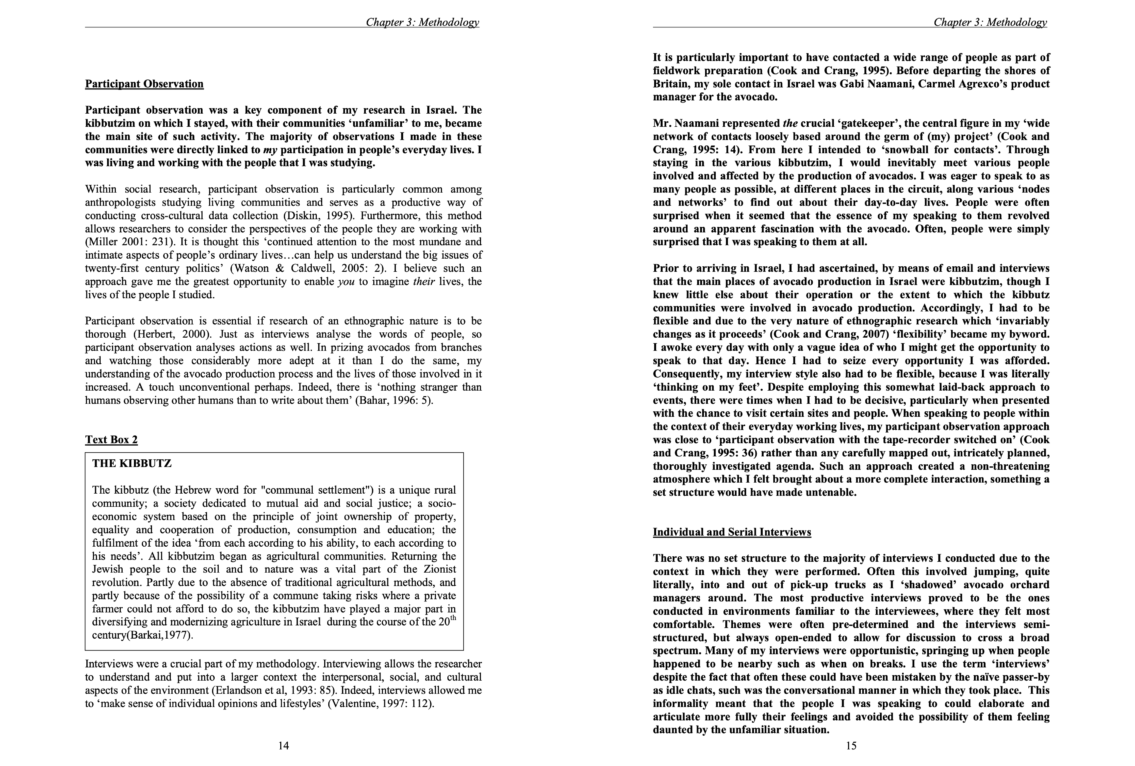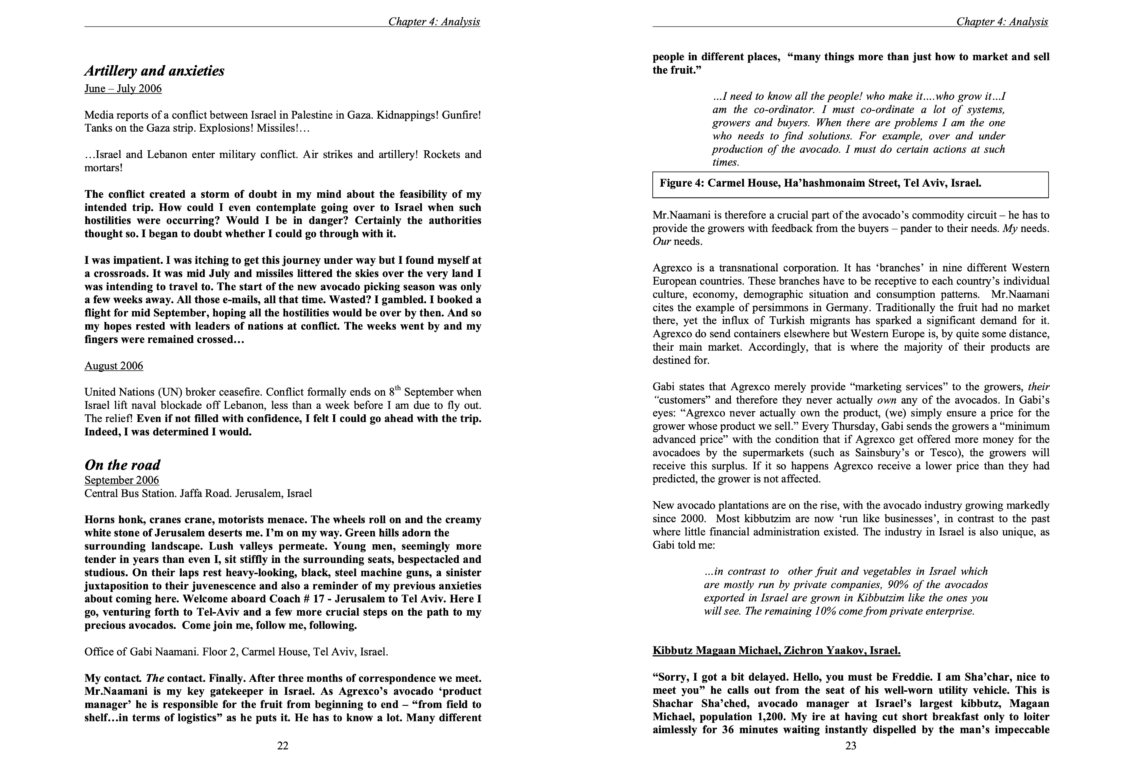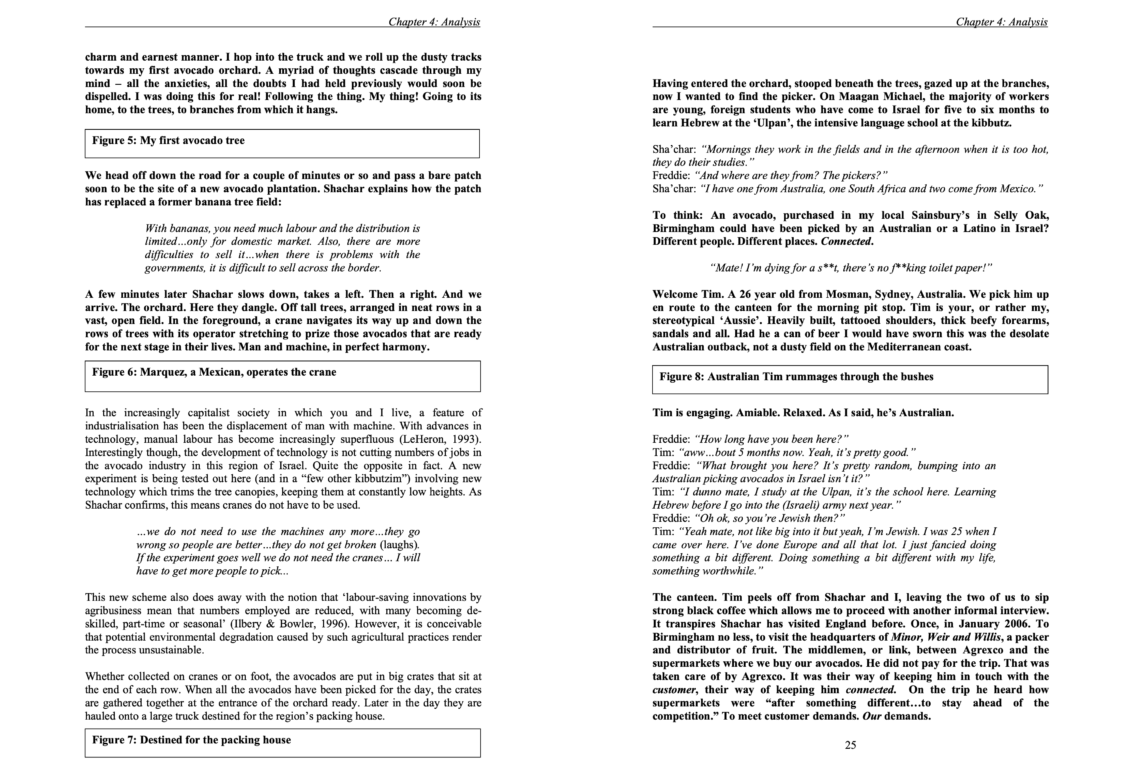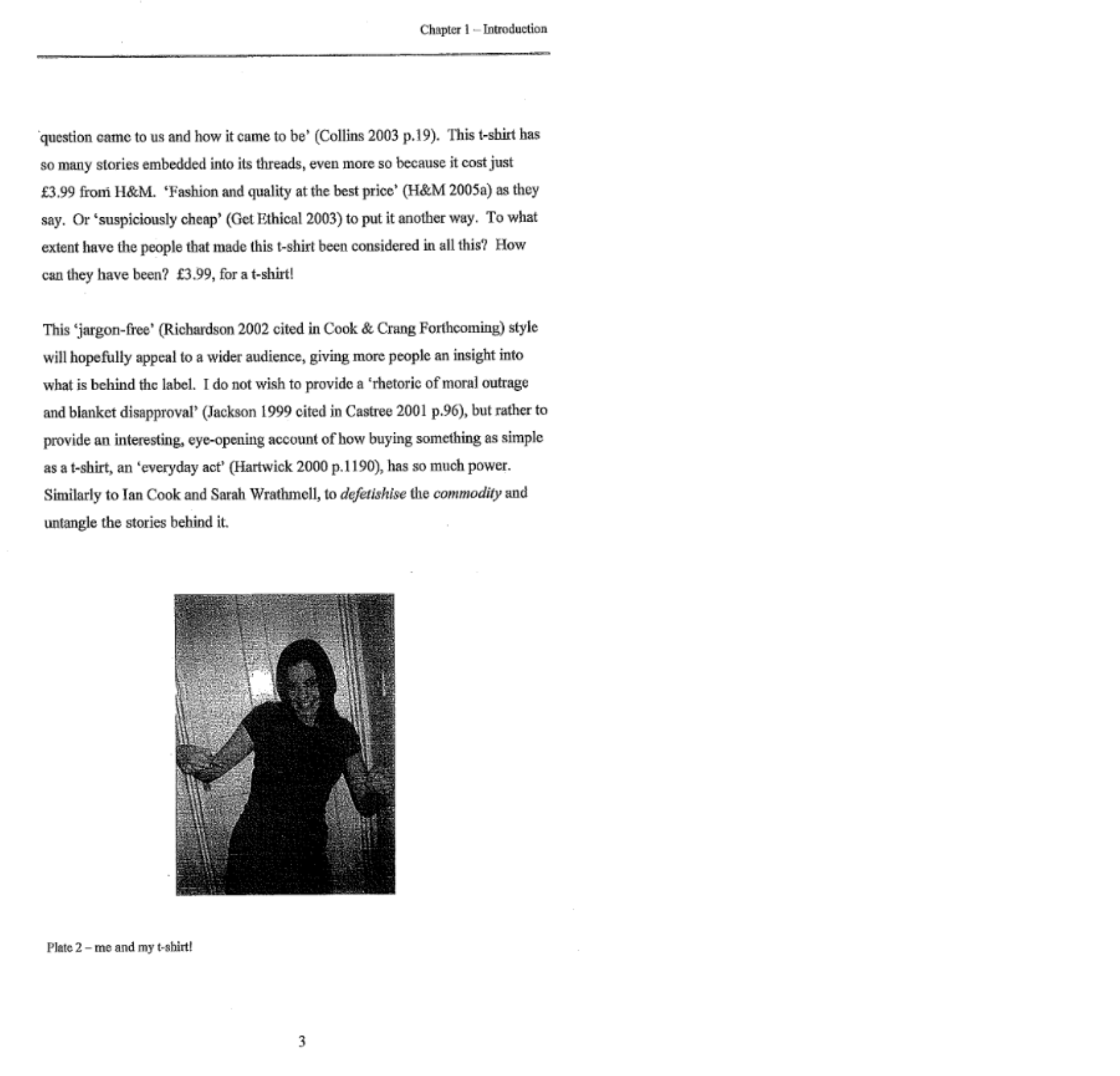
followthethings.com
Grocery
“The Connectivitea Of Britain And Sri Lanka“
A dissertation by Sarah Wrathmell, submitted as part of their BA Geography degree at the University of Birmingham, UK.
Sample pages from its findings chapters are embedded in the slideshow above. Click them to read the dissertation.
Undergraduate Geography student Sarah Wrathmell has an ambitious idea for her dissertation research. She wants to travel to Sri Lanka to find the people who grow her morning cup of tea on a plantation in Kandy, Sri Lanka. She plans to ‘follow the thing’ and to undertake some multisited ethnographic fieldwork along the supply chain of ‘Tillings’ (a pseudonym) loose breakfast tea. She ends up writing about six places: the tea garden where the tea is grown, its collection spaces, its production factory (all in Sri Lanka), its blending factory, a specialist tea shop, and a tea garden where she shares a pot of tea with a group of friends (all in the UK). She talks to pickers, packers and drivers; visits factories and talks to people tasting, processing and packaging it to exacting standards; and finally drinks that tea with those drinkers. This is embodied, sensory work that she has to – somehow – get on the page. What she wants to understand is what, and who, are the ingredients in her tea? And how are the lives of the people involved in making and drinking it interrelated? As a reader, your job is to follow her on her travels as she tries to make sense of this. Its assessors say it’s a fantastic piece of work. So, it’s submitted for a national dissertation prize. It wins this unanimously. We have a grainy .pdf copy that you can download and read. It’s important to show that not only are there high profile films, publications, and other forms of trade justice research and activism to pay attention to. Students have been doing this work too, for much smaller audiences, for years. What can this work look like?
Dissertation reference: Sarah Wrathmell (2003) The Connectivitea of Britain & Sri Lanka. BA Geography Dissertation: University of Birmingham, UK (followthethings.com/the-connectivitea-of-Britain-and-sri-lanka.shtml last accessed <insert date here>)
Page reference: Sarah Wrathmell (2024) The Connectivitea of Britain & Sri Lanka. followthethings.com/the-connectivitea-of-Britain-and-sri-lanka.shtml (last accessed <insert date here>)
Estimated reading time: 60 minutes.
Continue reading The Connectivitea Of Britain And Sri Lanka ![]()

